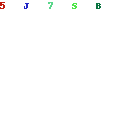 The New York Times ran an expose on the crew solidifying long held views that these DJ's actually have the blessing of the labels and are being paid by the labels to market their next hip hop album. The writer actually contacted me regarding this post. She contacted me saying she had already been writing bout the Aphilliates but with this new revelation wanted to contact the industry insider whose quote I posted up. I contacted my source but they were unwilling to cooperate because of possible repercussions. With further digging, Samantha was able to talk to the promotions director for Jive records, Ron Stewart
The New York Times ran an expose on the crew solidifying long held views that these DJ's actually have the blessing of the labels and are being paid by the labels to market their next hip hop album. The writer actually contacted me regarding this post. She contacted me saying she had already been writing bout the Aphilliates but with this new revelation wanted to contact the industry insider whose quote I posted up. I contacted my source but they were unwilling to cooperate because of possible repercussions. With further digging, Samantha was able to talk to the promotions director for Jive records, Ron StewartCan someone inform the RIAA what the left hand is doing? The RIAA is supposed to represent the labels but has so far alienated consumers and has no idea what the constituents they represent really want to do. Clearly a job well done.Mixtape D.J.’s have effectively absorbed many of the functions of an A&R department, the branch of a record label that traditionally discovers and develops new talent. Ron Stewart, a promotions coordinator at Jive Records, a subsidiary of Sony BMG Music, told me he prefers to test new artists out on mixtapes. “Budget permitting,” he said, “we’d do a few mixtapes with a few D.J.’s, because they have different audiences in different regions.” Labels prefer to use established mixtape D.J.’s like Drama, rather than produce promotional CDs themselves, Stewart said, because “the best D.J.’s have a better brand than the average label does.”
Although the deals are informal and often secret, labels typically pay a prominent D.J. like Drama $10,000 to $15,000 to produce a mixtape for an artist. The label’s representatives, Stewart explained, adopt what amounts to a don’t ask, don’t tell policy about the D.J.’s plans to sell the work; what the D.J. does with his copy of the master, Stewart said, “is his own business.”
NYT:Hip-Hop Outlaw (Industry Version)
No comments:
Post a Comment